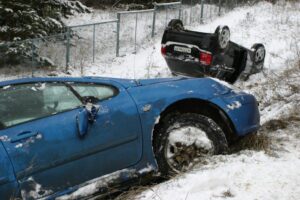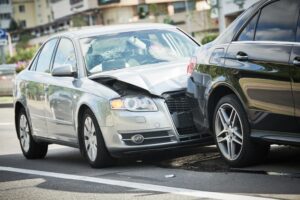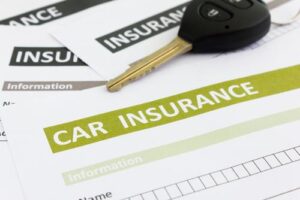
If you recently experienced a collision on the road, you may be asking yourself, “What diagnostic tests should I take after a car accident?” After any motor vehicle collision, it’s crucial to get thorough medical attention and evaluations—even if you believe your injuries are minor. Many serious internal injuries and soft tissue damage are not immediately apparent after an auto accident.
Typically, doctors will order imaging tests, such as MRIs and X-rays, to rule out any major injuries like bone fractures. They may also refer you to specialists, such as orthopedic doctors and chiropractors, to determine whether you suffered other types of injuries that can lead to medical complications.
The Atlanta car accident lawyers with John Foy & Associates understand the importance of diagnostic tests in a case. When we take on a case, we consult with our clients’ doctors and use their medical records to support their claims for compensation. By establishing our clients’ injuries and damages, we are able to seek maximum financial recovery.
Begin Diagnostic Testing Immediately After a Car Accident
Our Atlanta personal injury lawyers have seen how simply “toughing it out” without proper diagnostics can allow injuries to worsen and leave accident victims vulnerable to long-term health issues. You deserve to reach your maximum medical recovery after a collision. You can’t do this without a diagnosis of your injuries and prompt medical treatment.
Do not take chances when it comes to your health. We strongly recommend taking the following diagnostic steps after a car crash:
See a Doctor Immediately
Your first move should be visiting an emergency room, urgent care clinic, or your primary physician right away. Explain all symptoms you’re experiencing and request a comprehensive examination. Your doctor can complete initial tests and assessments while monitoring for any delayed symptoms.
Get Medical Imaging Done
Diagnostic imaging provides an inside look at your body to identify fractures, internal injuries, and soft tissue damage. Depending on your symptoms and the doctor’s evaluations, you may need X-rays, computed tomography (CT) scans, MRIs, or other radiological testing done. Do not delay getting these images taken.
Undergo Neurological Testing
Even minor car accidents can cause concussions, whiplash, and other head/neck trauma. If you experience headaches, dizziness, memory issues, or related symptoms after an accident, you should have a neurological evaluation done. This may involve CT scans, MRIs, cognitive testing, and more.
Consult With Orthopedic and Rehabilitation Specialists
Auto accidents commonly result in musculoskeletal injuries, including sprains, fractures, herniated discs, and soft tissue damage. Seeing an orthopedic physician and completing any recommended physical therapy evaluations is often essential after a crash.
Monitor Your Symptoms Closely
Many accident injuries can take days or even weeks before becoming apparent. You should closely monitor how you feel after a wreck and report any new, worsening, or lingering symptoms to your doctor immediately. Ongoing diagnostic testing may be required.
Get the strong arm
The Diagnostic Tests You Take After an Auto Collision Can Support Your Case for Damages
The thorough documentation provided by extensive medical testing is critical for both getting the treatment you need and establishing a strong personal injury claim. A personal injury lawyer can help you obtain fair compensation for all medical costs, lost wages, and other damages from the accident.
If you’ve been hurt in a car crash caused by someone else’s negligence, we encourage you to undergo all recommended diagnostic testing without delay. If you do not, an insurance adjuster may argue either of the following points:
- Your accident-related injuries are not as severe as they really are.
- You contributed to your accident-related injuries by delaying or forgoing necessary medical treatment.
Then, an insurance company may undervalue or outright deny your liability claim. To protect your claim, you have to present compelling evidence of your injuries. The only way to do this is to undergo diagnostic tests that will serve as medical evidence. Once you establish that you do have injuries, these medical records can also support a claim for future medical expenses, such as any needed ongoing physical therapy.
Consult a Car Accident Attorney Even if You Have Not Yet Received Diagnostic Test Result
It’s never too soon to begin working on a car accident claim. Even if you have not yet received your diagnostic test results, you can reach out to a lawyer for a free consultation. They can begin building your case as you continue to undergo treatment for your injuries. Keep in mind that the medical recovery process can take some time.
Still, you may have a legal deadline to meet. For example, if your injuries will likely exceed the coverage provided in an insurance policy, you will want to file a personal injury lawsuit. You have a deadline to meet when taking legal action, though. Ga. Code § 9-3-33 typically only gives you two years to file a personal injury lawsuit.
The sooner you reach out to a law firm, the sooner they can begin working on your case and protecting your right to seek maximum compensation for damages, such as:
- Medical expenses
- Pain and suffering
- Property damage
- Disability
- Lost income
- Reduced earning capacity
We Can Explain More About What Diagnostic Test You Should Take After a Car Collision
After a car accident, take your health seriously and see a doctor. They will know which diagnostic tests to run to assess your accident-related injuries. Then, you can seek legal representation to build a claim against a negligent party. The car accident attorneys with John Foy & Associates can help.
We can investigate your accident, identify any liable parties, and work to hold them responsible for your medical bills, lost income, and other damages. Our legal team does not charge upfront fees to start a case.
Contact us now to access your complimentary consultation. We are available 24/7 to take your call and discuss your legal options.
404-400-4000 or complete a Free Case Evaluation form





